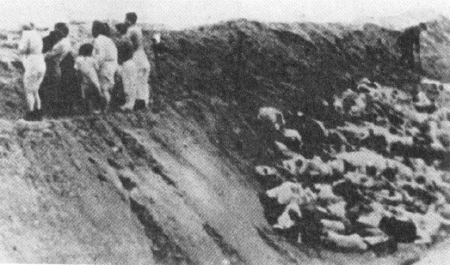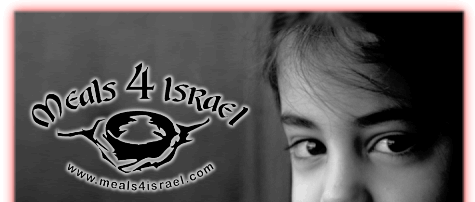International Holocaust Memorial for Nazi Babi Yar Ukraine Massacre
By
Jeremy Wimpfheimer and Daniel Epstein Kiev----September 21...... For two days in late September, a quiet ravine deep within the forests outside of Kiev, Ukraine, will become the site of an international memorial event for one of the bloodiest massacres of the Nazi Holocaust. Called Babi Yar, the site was witness to the murder of more than 33,000 Jews over the course of a five day period in the fall of 1941. While the event is well documented by Holocaust historians and remembered by the families of its victims, the Babi Yar massacre has become part of the "hidden Holocaust," according to Moshe Kantor, organizer of the memorial ceremonies that will include the participation of dignitaries from more than 40 nations. "Most people today simply do not know what happened there," says Kantor, President of the Russian Jewish Congress and Chairman of the Board of Governors of the European Jewish Congress. "Most troubling is the fact that much of the world was tolerant of the Nazi crimes that took place at Babi Yar and that tragic permissiveness allowed more than 6,000 similar slaughters to take place over the coming years - and all this before the ‘official’ death camps were even built." More than 40 nations, including Russia, the US and Israel have confirmed the attendance of high level government officials. Ukrainian President Viktor Yushenko will be joined by Heads of State from Croatia, Bosnia and Slovenia. "This is a moment of truth for governments to determine what is their official position when it comes to issues of anti-Semitism and xenophobia," says Kantor. Kantor founded and leads the World Holocaust Forum www.worldholocaustforum.org, which is coordinating the memorial, an organization dedicated to preserving the memory of the Holocaust and educating the world about its important lessons for all humanity. He believes the world today faces a critical danger if it forgets the dangers posed by hatred. In a rare interview which, ironically, took place five years virtually to the minute after the Twin Towers were brought down during the September 11th 9/11 terror attacks in North America, World Holocaust Forum Chairman Viatcheslav (Moshe) Kantor, warned sharply about the dangers of intolerance. "Anti-Semitism and xenophobia come in cycles. Some periods have more, some have less," commented Kantor from Geneva. "But the world was absolutely tolerant of the events at Babi Yar, and this single event became a defining moment in the way the Nazi Holocaust progressed from that point onwary. World apathy enabled the Nazis to move forward in their slaughter of six million European Jews." Kantor points to disturbing expressions of hatred hatred directed toward Jews in many cities around the world. These range from recent acts of violence against Jews in Russia to the call by Iran President Mahmoud Ahmadinejad for an Iran conference to deny the Holocaust. Kantor says, "Anti-Semitism on the social level is growing around the globe. Now more than ever, the symbolism and warning of Babi Yar must ring loudly, and we are ensuring that the terrible events of the past are a lesson to modern society about the frightening dangers of intolerance." Kantor commented that "President Yushchenko has a full understanding of the World Holocaust Forum’s goals and motivations, why we are having this commemoration ceremony in Kiev and what the final result should be.” “Russia once again is facing a moment of truth," commented Kantor, referencing Russia’s decision to send a senior delegation to the events. "President Putin said in his speech at the 60th anniversary commemoration of the liberation of Auschwitz that he was ashamed of the anti-Semitism and xenophobia that had surfaced in Russia. Once a country declares that it should take meaningful lessons away from the Holocaust, its people can start to improve their attitude towards racial intolerance."
According to event organizers, two days of commemorations on Sept. 26th and 27th, will include a series of Holocaust exhibits, lectures and concerts to be highlighted by a somber march of participants from central Kiev to the Babi Yar site, retracing the steps of the thousands of Jews who walked a similar path to their deaths 65 years ago. It will be an emotionally charged walk on Wednesday afternoon from central Kiev to the Babi Yar killing fields. Focused on developing original educational initiatives to better inform people about the realities of the Holocaust, the World Holocaust Forum has created a European Holocaust Education program that will train teachers to relate to Nazi crimes against the Jews to better foster tolerance between religions and nationalities. Over the years, criticism has been levelled at several Eastern European governments as well as Russia that these countries are not doing enough to actively combat anti-Semitism. Ukraine was one of the countries mentioned. In July, the menorah-shaped Holocaust memorial at Babi Yar, erected 15 years ago by the Jewish community, was badly vandalized. "Currently, Babi Yar is a place where kids play soccer. The games needs to stop," observed Kantor.
Sponsored by IsraelPr.com |

